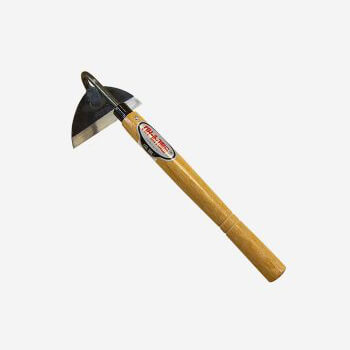ನವೆಂ . 05, 2024 01:00 Back to list
knife gate valve pneumatic
The Role of Pneumatic Knife Gate Valves in Modern Industries
In many industrial applications, controlling the flow of materials, whether liquids or solids, is crucial for efficiency and safety. Among the essential components used for this purpose are valves, and one of the most effective types designed for handling bulk materials is the pneumatic knife gate valve. This article explores the significance of pneumatic knife gate valves, their functionality, applications, and advantages, highlighting their role in modern industries.
Understanding Pneumatic Knife Gate Valves
A knife gate valve is designed specifically for applications where a tight seal and smooth operation are paramount. The knife aspect comes from the sharp-edged blade that cuts through the material being transported, whether it is a slurry, powder, or other bulk materials. The pneumatic variant utilizes compressed air to actuate the valve, allowing for rapid opening and closing, which is essential in many automated processes.
Key Components and Operation
Pneumatic knife gate valves consist of several key components
1. Body The body of the valve is typically made from robust materials such as stainless steel or cast iron, ensuring durability and resistance to corrosion.
2. Blade The knife blade is precisely engineered to cut through materials effectively, minimizing wear and maintaining a proper seal when closed.
3. Actuator The pneumatic actuator uses compressed air to move the valve stem, raising or lowering the blade. This mechanism allows for quick responses to changing operational needs.
4. Seals High-quality seals are required to prevent leakage. Materials used for seals are chosen based on the media being handled and the operational environment.
The operation of a pneumatic knife gate valve is relatively straightforward. When compressed air enters the actuator, it pushes the blade downwards into the flow path, thus opening the valve. Conversely, when the air supply is cut off, the blade returns to its closed position, sealing the flow.
Applications Across Industries
Pneumatic knife gate valves find extensive applications across various industries, including
knife gate valve pneumatic

1. Wastewater Treatment In wastewater treatment plants, these valves control the flow of sludge and effluent, allowing operators to manage the treatment processes efficiently.
2. Mining and Mineral Processing In the mining industry, these valves are used for handling the slurries and tailings that are produced during ore extraction processes.
3. Food and Beverage In food processing, it's critical to maintain hygiene and prevent contamination. Pneumatic knife gate valves made from food-grade materials safely regulate the flow of ingredients and outputs.
4. Power Generation They are also found in the power sector, particularly in coal handling processes where the valves control the flow of coal dust and other related materials.
Advantages of Pneumatic Knife Gate Valves
The benefits of using pneumatic knife gate valves are numerous
1. Efficiency The quick actuation provided by pneumatic power allows for faster operation compared to manual valves, which is especially critical in automated systems.
2. Minimal Maintenance With fewer moving parts in comparison to other valve types, pneumatic knife gate valves require less maintenance, leading to lower operational costs.
3. High Seal Integrity The design of the knife blade ensures a tight seal even under high pressures, preventing leaks and improving system reliability.
4. Versatility These valves can accommodate a wide variety of materials, making them applicable in diverse environments and industries.
5. Safety Pneumatic automation reduces the need for human intervention in potentially hazardous areas, addressing safety concerns in high-risk industries.
Conclusion
Pneumatic knife gate valves are indispensable components in the modern industrial landscape, providing efficient, reliable, and safe control of material flows in a variety of applications. Their design and operation offer numerous advantages, making them suited for industries that require precision and durability in their flow control solutions. As industries continue to evolve and automation becomes more prevalent, pneumatic knife gate valves will undoubtedly remain a key element in enhancing operational efficiency and safety. With continued advancements in materials and actuator technology, the future of knife gate valves looks promising, ensuring they will meet the demands of increasingly complex industrial processes.
Share